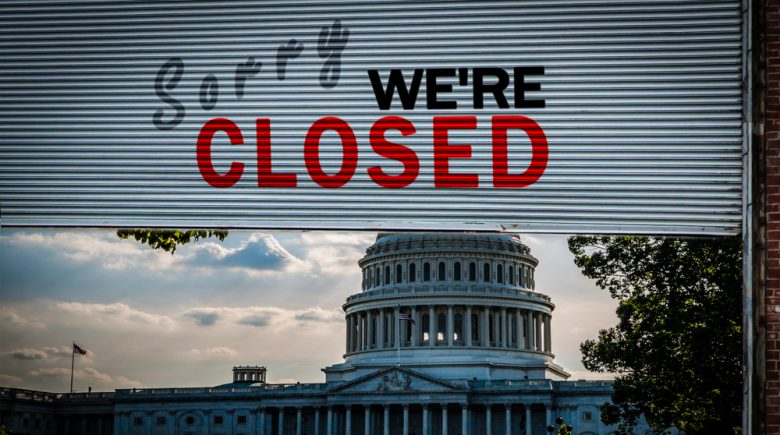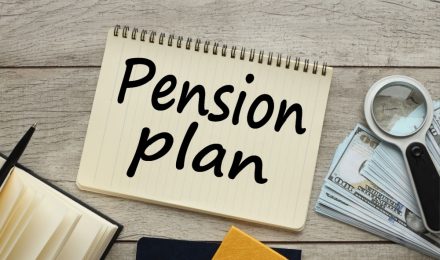The government shutdown is over. For now. This was not the first time that thousands of workers have been affected by a shutdown and it likely won’t be the last. Effects of the government shutdown were felt throughout the entire US economy and not just by government workers. Regardless of if you are a government worker or not, there are several lessons that can be learned from the government shutdown regarding your approach to personal finance.
One of these lessons is the notion of a ‘stable’ job. In today’s world, there is no such thing. Government work is widely regarded as the most stable type of employment, but the shutdown proved this not to be the case. There is realistically no job or scenario that is truly stable, meaning that you should never take income for granted. In addition, this may be a great time to explore side hustles or other ways to generate a supplemental stream of income. There are a ton of options for this, depending on what your talents are. While no job is truly stable, it is completely unlikely that all your prospects would disintegrate in the same day. Thus, developing a second form of income is highly recommended as a first step for increasing your financial security.
Build a safety savings account. Do it yesterday. Truthfully, everyone should already have an emergency savings account, but if not, the government shutdown should be a motivating reason to create one. This should be savings, but not credit. Credit is not always reliable, as identity theft can destroy it and leave you hopeless. In addition, credit comes with interest, whereas cash does not. If every government worker had the recommended savings account, one month’s expenses, the shutdown would likely have been less traumatic for many workers and their families. To build up your emergency fund, try transferring small amounts of money weekly, so that it builds up slowly without too much pressure.
There are also some hard questions that everyone should ask themselves. If you are struggling to pay off debts or build up a savings account, you may be living beyond your means. This is undoubtedly a difficult notion but living within one’s means would mean that a savings account could be built, and debts could be paid. This is another phenomenon revealed by the government shutdown – many Americans are living well beyond their means. While this may be disheartening, there are steps that can be taken to live a more frugal life and many of them don’t require massive sacrifices in lifestyle or life quality. There are simple resources available online that will help you create a budget, as well as tips and tricks that can help you stay on that budget.
Change how you think about your job. Knowing that no job is permanent or stable, always be on the lookout for new opportunities. Essentially, always be job hunting. Don’t be obvious about it though, lest you attract negative attention from your superiors. Focus on everything you like and don’t like about your job and look for opportunities more in-line with what you think your ideal work environment would be like. In most scenarios, your superiors would not hesitate to fire you, so affording them a high level of loyalty is foolish at best. Don’t be ashamed to use the connections and experience that your current job has given you to find an even better career.
In key with that, start networking. Usually, networking is the strongest after college, or when individuals wish to move into a more professional world. This networking, however, stops once a cushy job is found. End this pattern. Network always. By having a constant and maintained network of peers in your industry, you essentially have a safety net. Consider this, the government shuts down and you are out of a job. You have some network contacts, but you haven’t spoken to them in 15 years. Are they going to be keen to help you with your predicament? Not likely. But, with a well-maintained network, the people you spoke to last month, may be familiar with your situation and more willing to help. Thus, having a constant network can be a great insulator for unpredictable turmoil.
It is also a notable pattern that, when one finds a good job, they let their resume get metaphorically dusty. This is undesirable. In a job market that is shifting more precariously than ever before, it can make of world of difference to have a constantly updated resume available. Always be working on adding more transferable skills and work experiences to your resume to make it more competitive in your industry. Thus, in the event of a government shutdown or something similar, you have a polished resume ready to go. Whereas, if you hadn’t prepared, you may not have anything to show. Thus, you would have to spend a day or two just getting a resume ready, which is a waste of time when you have no paycheck coming in.
While the government shutdown was undeniably bad, it did offer some harrowing advice and lessons about personal finance. There is no such thing as a truly stable job anymore, and thus, there are many things that can be done to prepare for this. Actions such as building a savings safety net, networking, constantly looking for new opportunities, and always having a resume ready to go are some of the ways that you can prepare yourself for sudden changes. By preparing yourself financially, you can avoid the worst damages that are caused by unpredictable events.
The government shutdown is over. For now. This was not the first time that thousands of workers have been affected by a shutdown and it likely won’t be the last. Effects of the government shutdown were felt throughout the entire US economy and not just by government workers. Regardless of if you are a government worker or not, there are several lessons that can be learned from the government shutdown regarding your approach to personal finance.
One of these lessons is the notion of a ‘stable’ job. In today’s world, there is no such thing. Government work is widely regarded as the most stable type of employment, but the shutdown proved this not to be the case. There is realistically no job or scenario that is truly stable, meaning that you should never take income for granted. In addition, this may be a great time to explore side hustles or other ways to generate a supplemental stream of income. There are a ton of options for this, depending on what your talents are. While no job is truly stable, it is completely unlikely that all your prospects would disintegrate in the same day. Thus, developing a second form of income is highly recommended as a first step for increasing your financial security.
Build a safety savings account. Do it yesterday. Truthfully, everyone should already have an emergency savings account, but if not, the government shutdown should be a motivating reason to create one. This should be savings, but not credit. Credit is not always reliable, as identity theft can destroy it and leave you hopeless. In addition, credit comes with interest, whereas cash does not. If every government worker had the recommended savings account, one month’s expenses, the shutdown would likely have been less traumatic for many workers and their families. To build up your emergency fund, try transferring small amounts of money weekly, so that it builds up slowly without too much pressure.
There are also some hard questions that everyone should ask themselves. If you are struggling to pay off debts or build up a savings account, you may be living beyond your means. This is undoubtedly a difficult notion but living within one’s means would mean that a savings account could be built, and debts could be paid. This is another phenomenon revealed by the government shutdown – many Americans are living well beyond their means. While this may be disheartening, there are steps that can be taken to live a more frugal life and many of them don’t require massive sacrifices in lifestyle or life quality. There are simple resources available online that will help you create a budget, as well as tips and tricks that can help you stay on that budget.
Change how you think about your job. Knowing that no job is permanent or stable, always be on the lookout for new opportunities. Essentially, always be job hunting. Don’t be obvious about it though, lest you attract negative attention from your superiors. Focus on everything you like and don’t like about your job and look for opportunities more in-line with what you think your ideal work environment would be like. In most scenarios, your superiors would not hesitate to fire you, so affording them a high level of loyalty is foolish at best. Don’t be ashamed to use the connections and experience that your current job has given you to find an even better career.
In key with that, start networking. Usually, networking is the strongest after college, or when individuals wish to move into a more professional world. This networking, however, stops once a cushy job is found. End this pattern. Network always. By having a constant and maintained network of peers in your industry, you essentially have a safety net. Consider this, the government shuts down and you are out of a job. You have some network contacts, but you haven’t spoken to them in 15 years. Are they going to be keen to help you with your predicament? Not likely. But, with a well-maintained network, the people you spoke to last month, may be familiar with your situation and more willing to help. Thus, having a constant network can be a great insulator for unpredictable turmoil.
It is also a notable pattern that, when one finds a good job, they let their resume get metaphorically dusty. This is undesirable. In a job market that is shifting more precariously than ever before, it can make of world of difference to have a constantly updated resume available. Always be working on adding more transferable skills and work experiences to your resume to make it more competitive in your industry. Thus, in the event of a government shutdown or something similar, you have a polished resume ready to go. Whereas, if you hadn’t prepared, you may not have anything to show. Thus, you would have to spend a day or two just getting a resume ready, which is a waste of time when you have no paycheck coming in.
While the government shutdown was undeniably bad, it did offer some harrowing advice and lessons about personal finance. There is no such thing as a truly stable job anymore, and thus, there are many things that can be done to prepare for this. Actions such as building a savings safety net, networking, constantly looking for new opportunities, and always having a resume ready to go are some of the ways that you can prepare yourself for sudden changes. By preparing yourself financially, you can avoid the worst damages that are caused by unpredictable events.



